Vietnam joins hands with international community in responding to climate change
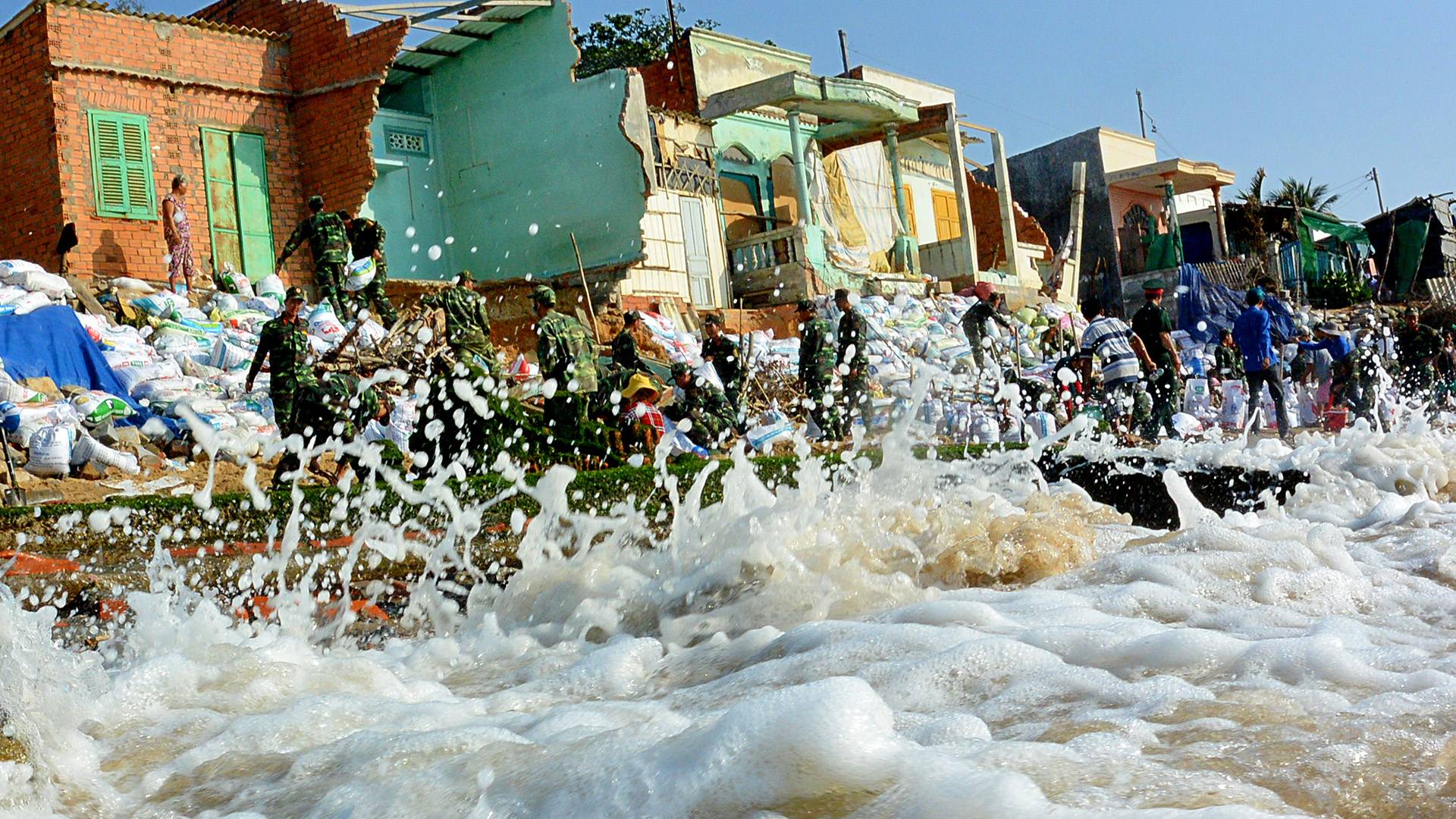
On the eve of the 26th UN Climate Change Conference of the Parties (COP26), which is being held in Glasgow, the UK, from October 31 to November 12, countries around the world including Vietnam have been taking actions to combat climate change while demonstrating efforts to curb global warming, for the health of the Earth as well as for the future of life across the planet.
As a country heavily affected by climate change, although Vietnam has been developing after many countries in the world, the country has exerted great efforts to come up with a range of adaptation solutions to minimise the impacts of climate change. Vietnam is also one of the first developing countries in the world to include the obligation to reduce greenhouse gas emissions as a commitment within the legal system for the entire population to implement. The presence of a high-ranking Vietnamese delegation led by Prime Minister Pham Minh Chinh at the COP26 demonstrates Vietnam’s efforts to join hands with the international community in responding to climate change.
Severe effects of climate change
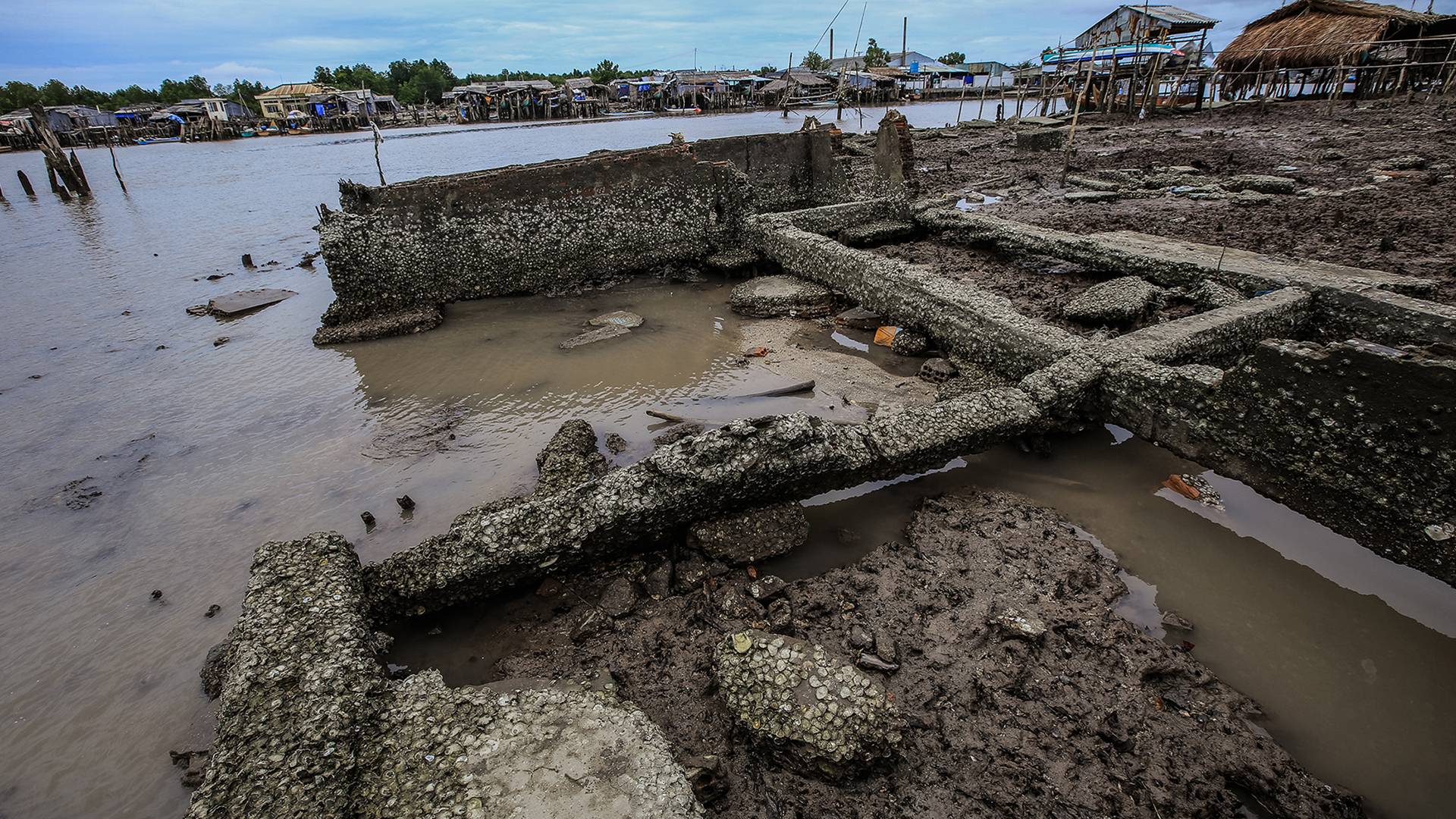
Vietnam is considered as one of the countries heavily affected by climate change due to its long coastline. If the sea level rises by 1 metre, 40% of the Mekong Delta and 10% of the Red River Delta will be flooded, directly affecting 20-30 million people.
The impact of climate change on Vietnam is very serious, an existential threat to the goals of poverty reduction, the Millennium Development Goals and sustainable development. According to the Intergovernmental Panel on Climate Change, if the sea level rises by 1m, it is estimated that 5.3% of the natural area, 10.8% of the population, 10.2% of GDP, and 10.9% of urban areas, 7.2% of the agricultural area and 28.9% of the lowlands in Vietnam will be affected.
Under the impact of climate change, in the last 10 years alone, natural disasters such as storms, floods, landslides, inundation, drought, saltwater intrusion, etc. have caused significant damage, leaving more than 9,500 people dead and missing, with property damage estimated at 1.5% of GDP per year.
Assessing the current status of impacts of climate change in Vietnam, Prof. Tran Thuc, Chairman of the Vietnam Association of Meteorology and Hydrology, and Deputy head of the consultancy board for Vietnam's National Committee on Climate Change analysed that when it comes to climate change, it is necessary to consider two processes: a gradual process such as rising temperatures and sea level rise, and a rapid process such as the increase in climate extremes.

Prof. Tran Thuc, Chairman of the Vietnam Association of Meteorology and Hydrology, and Deputy head of the consultancy board for Vietnam's National Committee on Climate Change.
Prof. Tran Thuc, Chairman of the Vietnam Association of Meteorology and Hydrology, and Deputy head of the consultancy board for Vietnam's National Committee on Climate Change.
“In Vietnam, the average annual temperature has increased by 0.89°C in the 1958-2018 period, and by 0.74°C in the 1986-2018 period; sea level rise is estimated at 2.74mm a year. Climate change increases exposure and vulnerability. Accordingly, slow-moving climate phenomena such as temperature rise and sea level rise tend to affect livelihoods and may lead to long-term migration; this directly affects the exposure and vulnerability of local people”.
According to Prof. Tran Thuc, data shows that extreme weather and climate phenomena have tended to increase in both intensity and frequency: extreme rain has increased in most regions of the country; the number of hot days has increased, the number of days of intense cold and harmful cold have decreased; drought has occurred more often; and the number of strong storms in the East Sea/South China Sea has tended to increase. Under the impact of climate change, Vietnam is witnessing unusual signs of weather and climate.
For example, in January, 2014 - in the middle of the dry season, the provinces from Ha Tinh to Quang Ngai witnessed an unusual flood, even higher than in the following year’s rainy season - there were big floods in the dry season and small floods during the rainy season. In recent years, rain in the central region has been quite irregular, much like in 2020, or saw less rain, like in 2018 and 2019. In 2016 there was an unprecedented snowfall in Vietnam, including at Ba Vi peak in Hanoi or Vu Khoang National Forest in Ha Tinh - something that had never been recorded before.
According to experts, the reality of climate change in Vietnam in recent years has happened faster than expected. Looking back and comparing with previous comments, before 2010, the beginning of many studies on the damage of climate change in the world, Vietnam was still a country heavily affected by climate change.
In recent years, research on the effects of climate change has also pointed out many issues that need to pay attention to, for example, 2017 was the year with an unusually high number of storms affecting the country (16 storms). According to the calculation of the Central Steering Committee for Natural Disaster Prevention and Control and the General Statistics Office, the losses total about VND38.7 trillion, equivalent to US$2.7 billion.
The impact of climate change on production is most evident in the agricultural sector. In Vietnam with the characteristics of Southeast Asia's humid tropical monsoon climate, in agricultural production, rice is the main crop, the influence of climate change on annual rice production accounts for the largest proportion. According to calculations by the General Statistics Office in 2018, the average for the 2011-2016 period was about 66.1%. In 2016 alone, drought and saltwater intrusion affected 527.7 thousand hectares of rice, of which about 44% of the area was completely damaged. Regarding other crops such as fruit trees and long-term industrial plants, crop yields will decrease by about 50% due to the impact of climate change. Climate change is also affecting livestock, forestry, biodiversity, forest fires, wetland ecosystems, aquaculture...
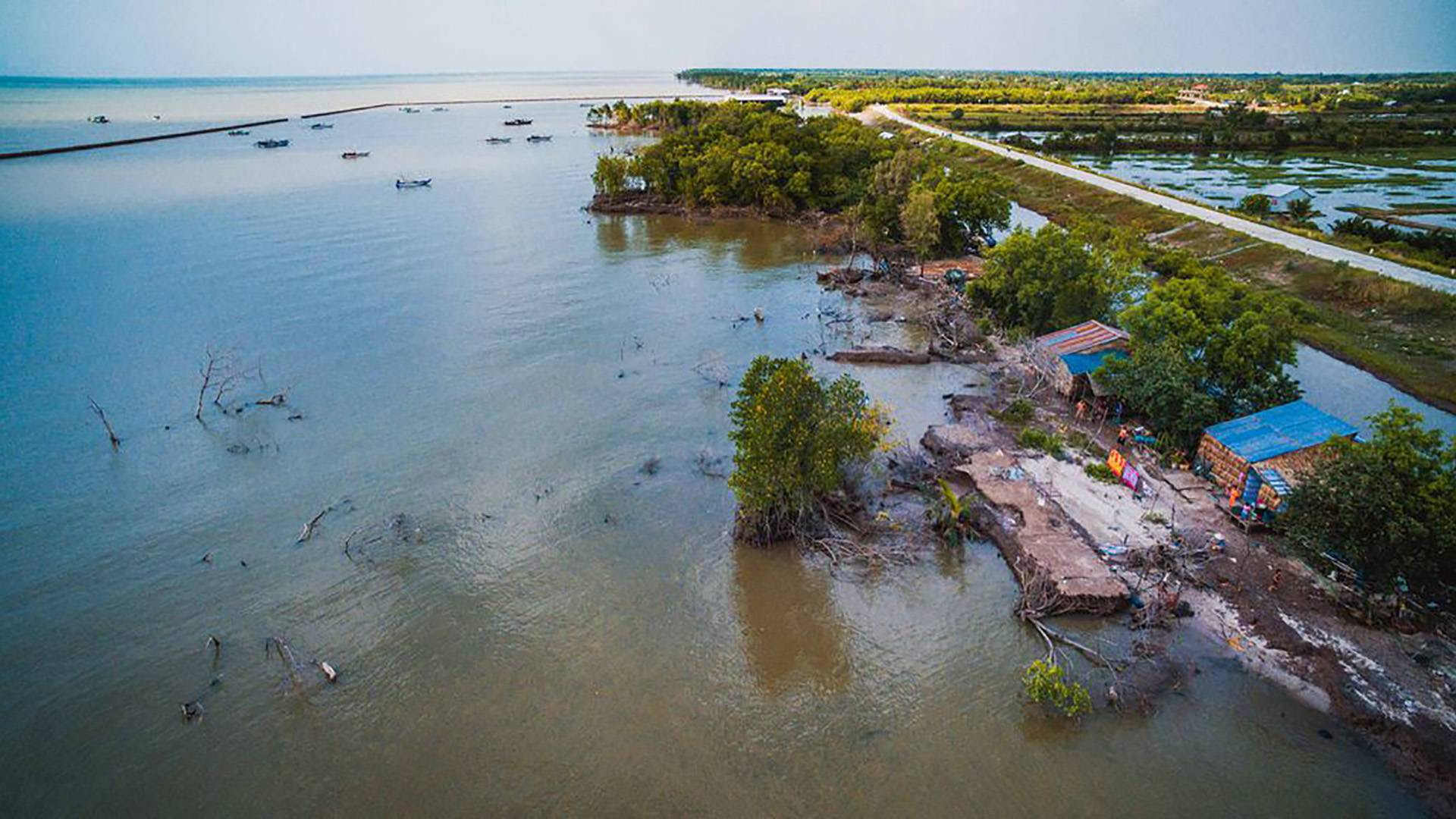
Climate change is also affecting transportation activities, according to the climate change scenario study, if the sea level rises by 1m, about 9% of the national highway system, 12% of the provincial road system, and 4% of the railway system will be affected. The Mekong Delta which accounts for 28% of national highways and 27% of provincial roads of the country will be hardest hit, followed by central coastal provinces, and the Red River Delta.
Climate change has also affected urban development, industrial zones and housing, the level of influence depends on each region, each locality and each location. The overall study showed that coastal areas are mainly affected by storms, mountainous areas are affected by flash floods, cyclones and landslides, midlands and plains are mainly affected by floods, cyclones, and hail.
Climate change has affected tourism, trade, energy… and many other economic activities in direct or indirect manner. These effects in recent years have shown quite clearly, each industry and field can feel and assess the impact of climate change.
Regarding industry, climate change will affect the processing industry, especially the processing of agricultural products. In the case of increased temperature, energy consumption will increase, leading to increases in many other activities such as the capacity of power plants and the use of cooling equipment, thus affecting national energy security. Studies under the sea level rise scenario shown that, if the sea level rises by 1m, most of the coastal industrial zones will be flooded, the lowest level is over 10% of the area, the highest level is about 67% of the area.
For gender equality, recent studies have shown that climate change has affected women's work. Women are the most vulnerable group due to climate change. Healthcare, household economy, migration will be among affected issues. This situation has been increasingly evident in areas affected by climate change such as the Mekong Delta and coastal areas and rural areas.
Besides the negative effects of climate change, it is necessary to look more comprehensively at the positive effects, such as those relating to rainfall and agricultural production. Some areas and fields can also take advantage of positive impacts of climate change. In agricultural production, the restructuring of crops and livestock due to climate change needs to be analysed carefully so as to understand both the positive and negative aspects. Economic efficiency should be taken as the basic criterion for evaluation.
Efforts made to actively respond to climate change
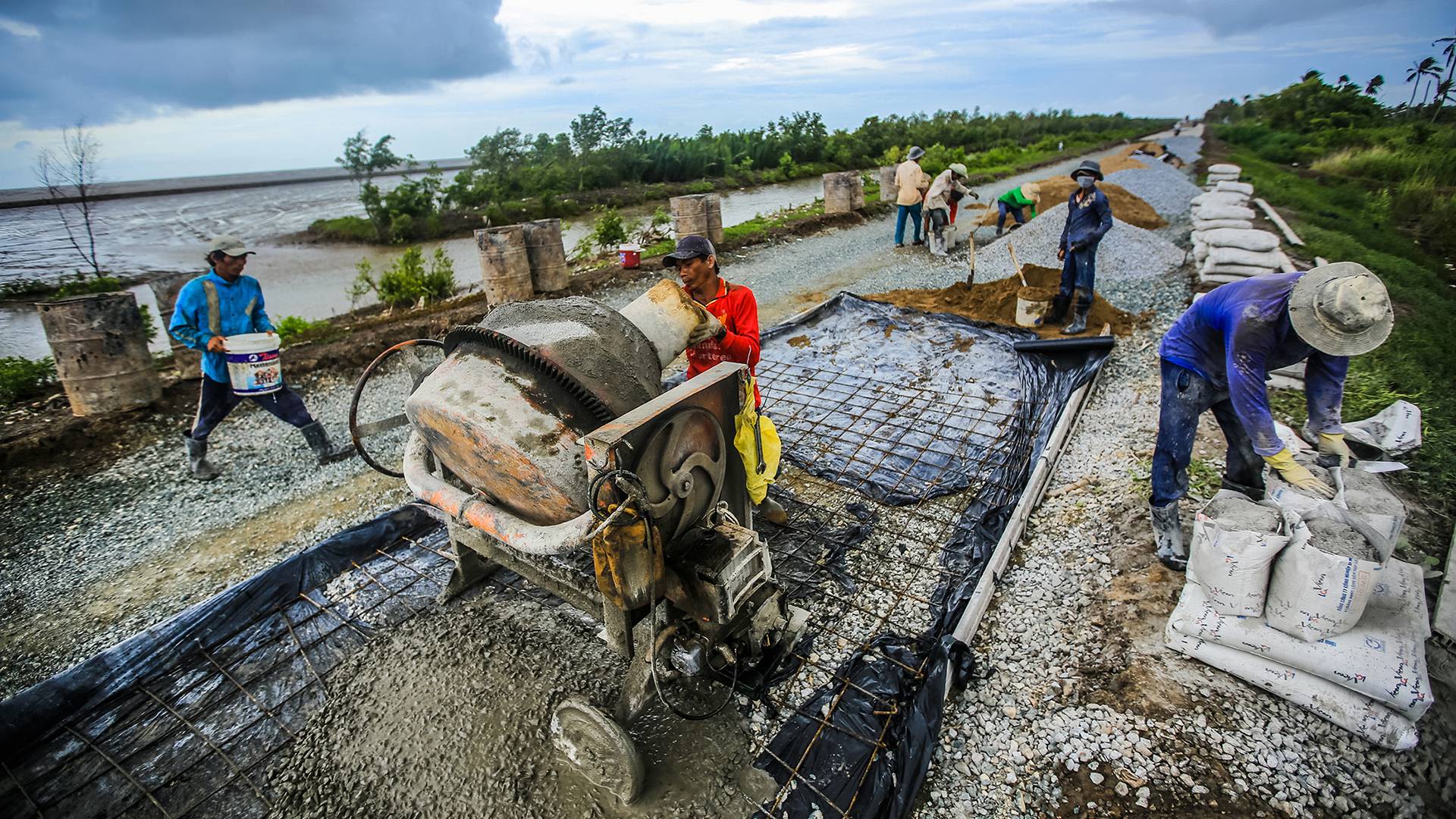
Vietnam became a member of the United Nations Framework Convention on Climate Change (UNFCCC) in 1994. As a developing country which is heavily affected by impacts of climate change, Vietnam has actively taken measures to respond to climate change while fulfilling its obligations as a member of the UNFCCC, the Kyoto Protocol and the Paris Agreement on climate change. In a bid to make positive contributions to protecting the Earth's climate system and fulfilling its obligations of a party to the UNFCCC, Vietnam submitted its Intended Nationally Determined Contribution (INDC) to the UNFCCC in 2015 and its updated Nationally Determined Contribution (NDC) to the UNFCCC in 2020.
Vietnam is also one of the first 20 countries to complete the review and update their NDCs. In its updated NDC, Vietnam has reviewed and updated contributions on reducing greenhouse gas emissions in line with the country’s situation and socio-economic development forecasts up to 2030.
Accordingly, by 2030 Vietnam will reduce its total greenhouse gas emissions by 9% compared to the Business-As-Usual Scenario (BAU), equivalent to 83.9 million tonnes of CO2, through the use of domestic resources. Vietnam’s contribution can be increased up to 27% (equivalent to 250.8 million tonnes of CO2eq) with international support through bilateral, multilateral cooperation and investment from businesses.
Compared to the NDC submitted in 2015, the update raises emission reduction target to combat climate change by 2%, in line with the overall increase of 2.8% as set by 75 member countries which had submitted their updated NDCs as of December 2020.
Recently, Vietnam issued the National Climate Change Adaption Plan (NAP) for the 2021 – 2030 period, with a vision to 2050, with the common goal of reducing vulnerability to and impacts of climate change through strengthening climate resilience and adaption of communities, economic sectors and ecosystems; and promoting the integration of climate change adaptation into the strategies and planning system.
The Ministry of Natural Resources and Environment has also been working on the draft national strategy on environmental protection by 2050.
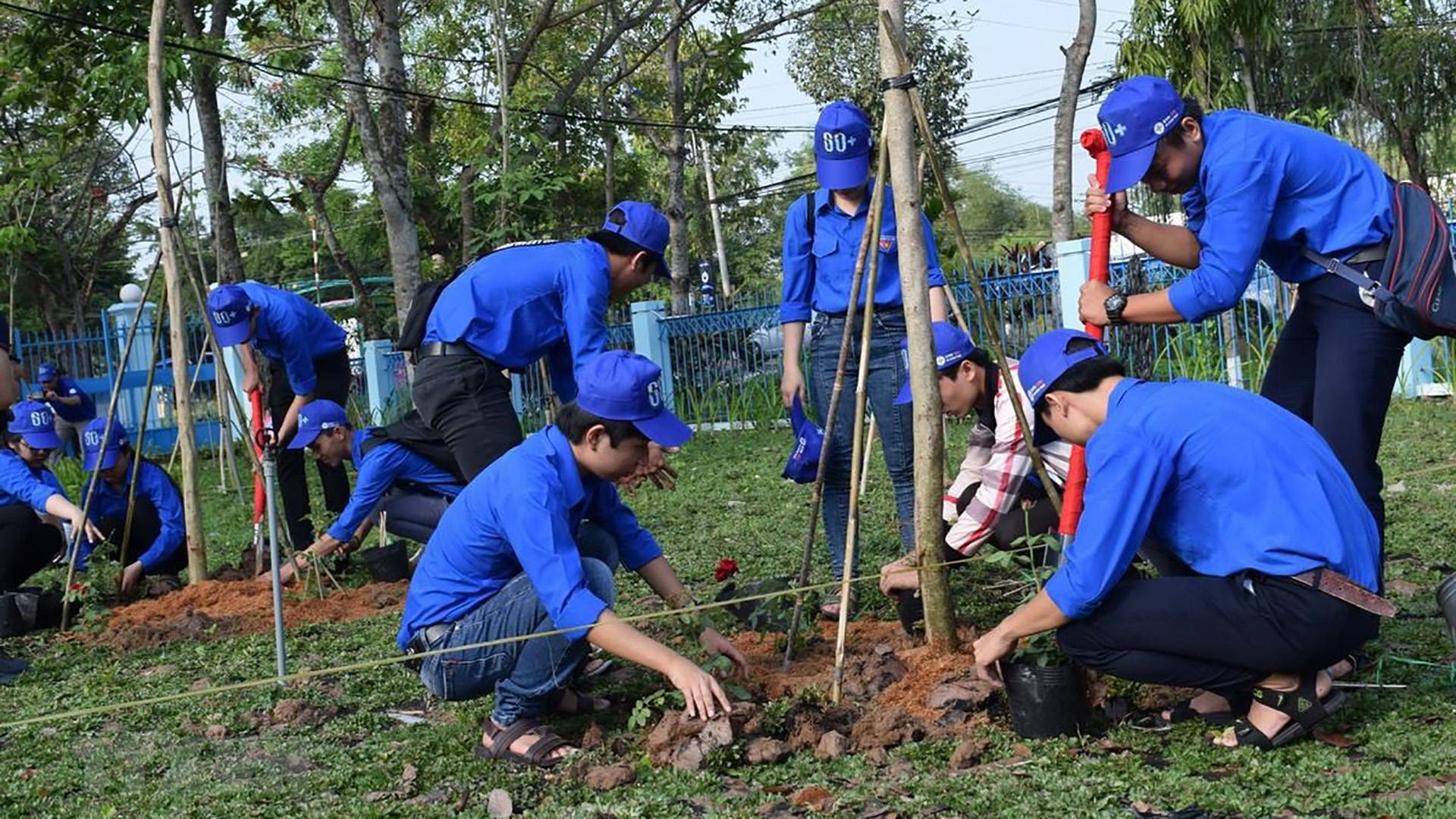
According to Deputy Director of the Ministry of Natural Resources and Environment's Department of Climate Change Pham Van Tan, Vietnam is among countries most heavily affected by the impacts of climate change. Over the past years, Vietnam has implemented many plans and action programmes to adapt to climate change and reduce greenhouse gas emissions.
Regarding adaptation to climate change, Vietnam has implemented a series of activities, considering climate change adaption in the Mekong Delta and coastal areas as well as natural disaster prevention and control as vital issues. Programmes have also been launched in long-term response to nature and climate change problems, such as sea level rise.
Reducing greenhouse gas emissions has become a mandatory requirement for all organisations and individuals living and working in Vietnam, as stipulated in the 2020 revised Law on Environmental Protection. It can be affirmed that Vietnam is one of the first developing countries in the world to integrate the obligation to reduce greenhouse gas emissions into the legal system for all people to follow. Vietnam considers reduction of greenhouse gas emissions and response to climate change as the responsibility of the entire political system.
“This makes Vietnam different from other countries, where climate change response is often assigned to targeted groups. However, in Vietnam, the entire political system must get involved in the work, which means that everyone has to bear responsibility. Under the revised Law on Environmental Protection, major emitting businesses have to measure their annual volume of greenhouse gas emissions in order to design suitable plans to reduce greenhouse gas emissions according to Vietnam’s commitments in implementation of the Paris Agreement,” said Pham Van Tan.
Sharing the same view, Prof. Tran Thuc, Chairman of the Vietnam Association of Meteorology and Hydrology, and Deputy head of the consultancy board for Vietnam's National Committee on Climate Change, said that the world highly appreciates the fact that any strategy or programme in Vietnam always attracts the active participation of ministries and branches.
“The building of a strategy or a program on climate change gathers all ministries and branches together, allowing the ministries and sectors to discuss and share any arising problems, difficulties and advantages during the policy building process. Therefore, once a strategy or program is completed and approved by the Prime Minister, it receives the consensus of ministries and branches, thus facilitating the smooth implementation of the document. That’s why foreign countries have appreciated Vietnam,” said Prof. Tran Thuc.
While talking about the Vietnam’s outcomes in its efforts made to adapt to climate change and reduce greenhouse gas emissions, Prof. Tran Thuc said that Vietnam has a strong political institution, which helps to mobilise the full participation of ministries, branches and localities. Secondly, the country has done well in organising communication campaigns to raise people's awareness about climate change, environment protection, natural disaster prevention and control. Thirdly, although Vietnam is heavily affected by climate change and often suffers from many types of natural disasters, the country has rich experience in living with natural disasters, which has helped us work out many sound climate change initiatives to solutions.
However, Prof. Thuc also pointed out difficulties facing Vietnam in fulfilling its commitment to step up climate change adaption and reduce greenhouse gas emissions.

Prof. Tran Thuc, Chairman of the Vietnam Association of Meteorology and Hydrology, and Deputy head of the consultancy board for Vietnam's National Committee on Climate Change
Prof. Tran Thuc, Chairman of the Vietnam Association of Meteorology and Hydrology, and Deputy head of the consultancy board for Vietnam's National Committee on Climate Change
“It is estimated that climate change adaptation will require a huge amount of funding, especially in regions such as the Mekong Delta, which is affected by saltwater intrusion and drought, and the central coastal region, which suffers from many types of natural disasters. The State's funding for climate change adaptation account only about one-third of the requirement, while businesses have made modest investment in climate change adaption projects, which seldom generate a financial return for investors.”
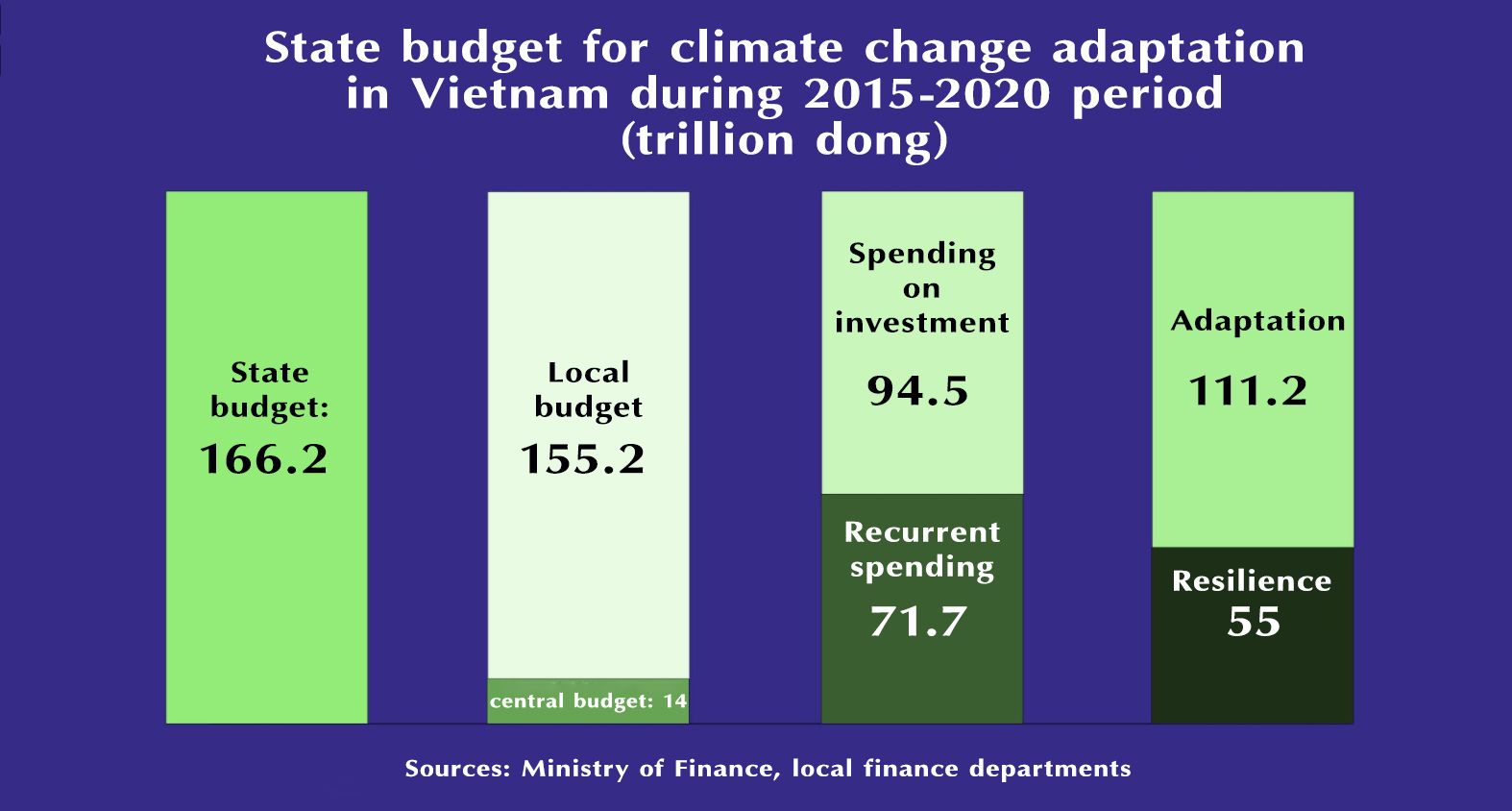
Regarding the reduction of greenhouse gas emissions, Vietnam's economy has recorded rapid development in recent decades. According to Prof. Tran Thuc, energy and electricity are important inputs for economic development, thus making it challenging regarding greenhouse gas emissions. In addition, technologies to help reduce greenhouse gas emissions are quite expensive.
Thanks to the significant efforts made over recent years, Vietnam has gained encouraging achievements in responding to climate change, both in terms of adaptation to climate change and reduction of greenhouse gas emissions. Prof. Tran Thuc identified a number of solutions Vietnam should focus on to further enhance its climate change adaptation capacity.
Firstly, it is necessary to review, amend and supplement the system of legal documents on response to climate change in accordance with the current context. There should be guidelines for integrating climate change into national and sectoral socio-economic development strategies, master plans and plans. It is also needed to strengthen coordination between ministries, branches and localities to solve inter-sectoral and inter-regional issues in response to climate change.
Secondly, the national resources invested in climate change adaptation remain limited. The government can only meet 30% of the current demand for adaptation, while the financial demand for the construction of projects to prevent natural disasters and adapt to climate change is enormous. The costs for climate change adaptation are projected to exceed 3-5% of GDP by 2030. If Vietnam is to spend 1.5% of GDP on climate change adaptation during the 2021-2030 period, the country would need to mobilise around US$3.5 billion from non-state sources each year, meaning a total of US$35 billion for the ten-year period. Measures are needed to encourage the private sector to invest in climate change adaptation.
Thirdly, Vietnam has a huge demand for technology, especially modern technologies for monitoring climate change, hydro-meteorological forecasting, and early warning of natural disasters.
Fourthly, the capacity of experts and technical officers on climate change, especially those at the local level, remains limited. Therefore, it is necessary to continue enhancing the capacity of natural disaster forecasting and warning along with scientific research and technology development for climate change adaptation. The capacity to select and prioritise resources for climate change adaptation activities also requires improvement.
Fifthly, it is necessary to upgrade the infrastructure and production tools for preventing natural disasters and adapting to climate change.
Vietnam takes a shortcut in reducing emissions
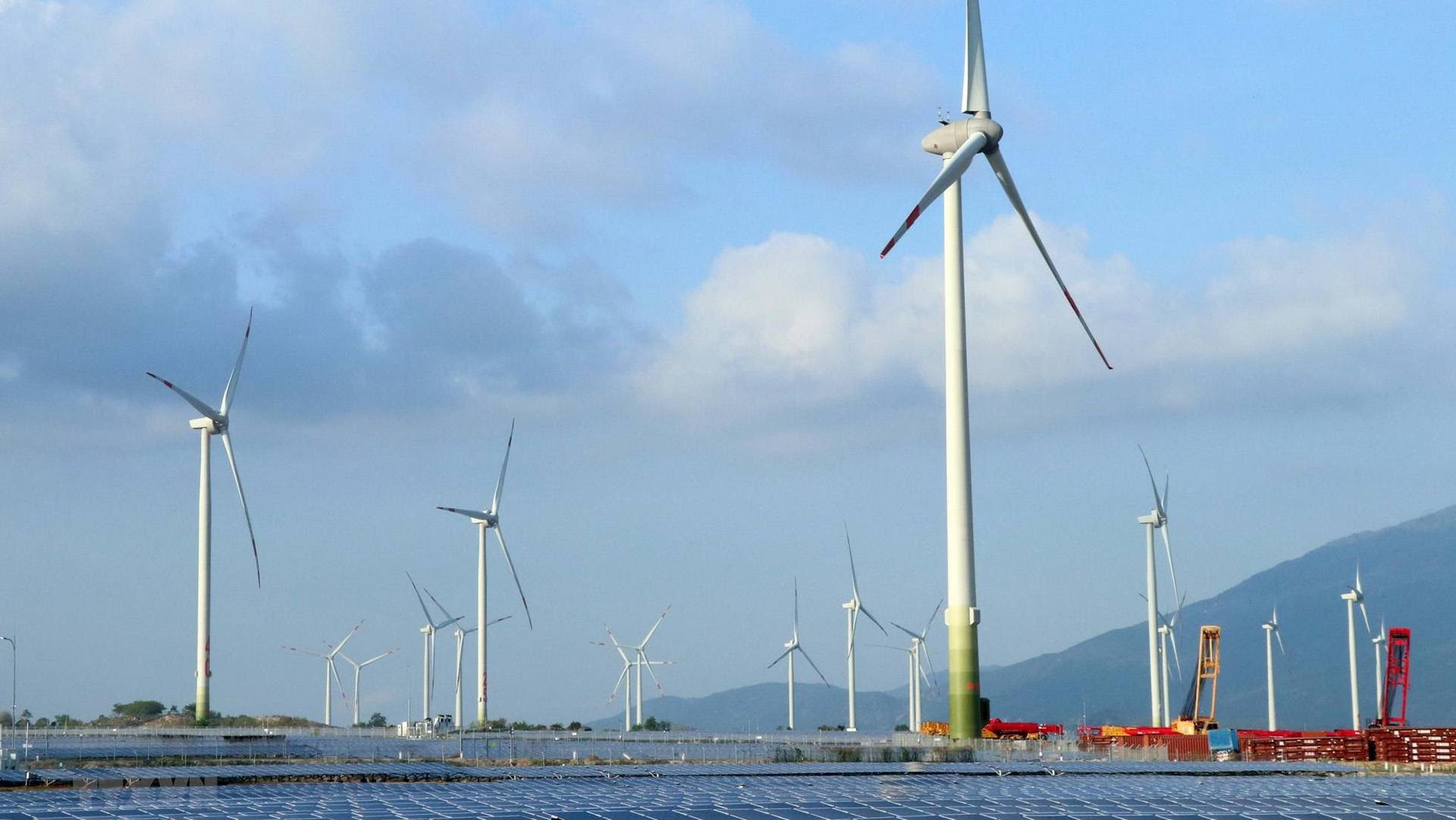
Although countries in the world have different starting points, in the face of global warming, all need to join hands and make strong commitments to fight against climate change. The COP26 conference, which opened on October 31, aims to limit global warming to 1.5°C compared to pre-industrial levels, as set out in the Paris Agreement.
Commenting on the difficulty in reaching this agreement, Pham Van Tan, Deputy Director of the Department for Climate Change, said that “If each country is considered a body, then the rich and poor countries on the Earth there are like fat and slim bodies. But the common trend of cutting emissions to adapt to climate change is like applying a single diet regime to everyone.”
Fat or slim, overweight or undernourished, all must adopt a shared policy so that greenhouse gas emissions are minimised. This task requires advanced technology with high costs and no benefits in sight. The economic impacts of the emission reduction requirements can be seen immediately, so it is not easy to get the whole world to reach a consensus because “hungry people” must think first on filling their stomachs before they can think on a more distant future.
“Vietnam is a low middle-income country, with a large gap with other countries. Vietnam’s GDP per capita is around US$3,000 while that of developed countries can be 10-30 times higher. But this is the global trend, and Vietnam cannot stand outside. Vietnam still needs to adopt the roadmap of people on a diet, but the regime should be implemented in accordance with the conditions of Vietnam”, affirmed Tan.
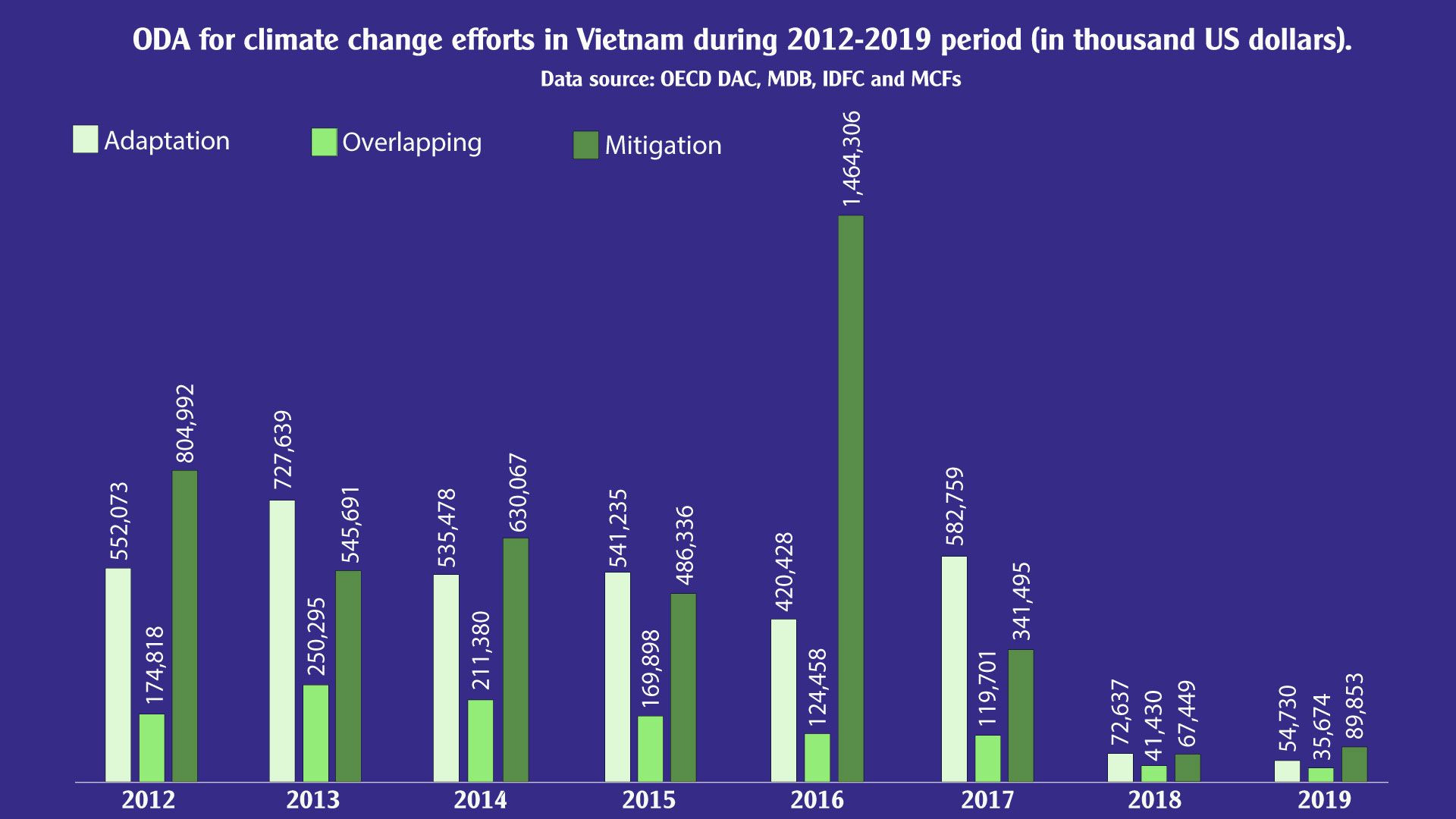
According to Tan, Vietnam also needs to “take a shortcut” in climate change response.
He explained that in order to achieve the current GDP per capita of US$30,000-40,000 the world has undertaken a “dirty” development path, such as by using a great amount of coal.
“Now, if we don’t want to repeat this path, we need to take a shortcut by turning to clean energy. Clean energy is more expensive, and it will be more difficult than using traditional energy sources to produce the same level of GDP. Vietnam needs to make much greater efforts than developed countries which are already tens and hundreds of years ahead of Vietnam”, said Tan.
As a long-time expert on climate change, Prof. Tran Thuc attended 12 COP conferences from 2008 to 2019. He said that “After attending COP conferences, I realise that negotiations on climate change require a complex process and progress is very slow.”
Prof. Thuc noted that all countries in the world agree that climate change is happening and will exert strong impacts on all people, ecosystems and countries; climate change is caused by humans through the excessive amounts of greenhouse gases emitted into the atmosphere; and humans can restrict or address climate change by reducing greenhouse gas emissions.
Therefore, negotiations are needed to determine each country’s responsibility in reducing emissions. The UN Framework Convention on Climate Change was signed in 1992 but it took 20 years of negotiation to reach the Paris Agreement on climate change in 2015, and a further six years to negotiate on the details of the agreement.
Prof.Thuc expressed his hope that this year’s COP26 conference in Glasgow can record significant progresses for the following reasons: Firstly, thorough preparations have been made amid the COVID-19 pandemic. Secondly, more than 130 national leaders have affirmed their attendance. And thirdly, as of now about 140 countries have announced that they will achieve carbon neutrality by the mid-century and many have increased their financial commitments.
In an interview ahead of COP26, Tan said that the conference has become important as climate change is becoming more and more severe as reported by Intergovernmental Panel on Climate Change in August. If the issue is not urgently addressed, humankind will reach the point of no return. The consequences would be unpredictable.
COP26 is also a conference marking five years since the Paris Agreement was adopted while 2021 is the first year in which the agreement is being implemented. We need to review what are missing in the preparations for the implementation of the Paris Agreement.
Vietnam is already known as one of the most vulnerable countries to climate change but there is a lesser-known fact that Vietnam is one of the largest emitters of greenhouse gases, ranking 21st in the world and second in ASEAN, only behind Indonesia. It is a fact though we don’t want it. This fact will give importance to Vietnam’s position at the conference and Vietnam will receive much attention from the international community.

Pham Van Tan, Deputy Director of the Department for Climate Change, Ministry of Natural Resources and Environment.
Pham Van Tan, Deputy Director of the Department for Climate Change, Ministry of Natural Resources and Environment.
“All of Vietnam’s adaptation activities in the past time can be put into lessons for countries with similar conditions to learn. Vietnam’s efforts to cut greenhouse gas emissions will make a substantial contribution to the global effort. Many countries with a similar or lower levels of development will look at Vietnam to act. Therefore, Vietnam’s presence and actions will have a substantial impact on the success of the conference and the global climate effort.”
Prime Minister Pham Minh Chinh and the Vietnamese delegation are attending the COP26 conference in the UK. The Vietnamese leader already delivered a speech on the first day of the conference.
Tan stated that “The Vietnamese delegation attends this conference with a very important position. The attendance and contributions of Vietnam will surely be commensurate with this position.”

Production manager: Truong Son
Content: Thao Le, Thanh Tra, Bong Mai
Translation: NDO
Design: Bong Mai, Phan Anh
Photos: Luu Trong Dat, Ho Van Dien, VNA.
